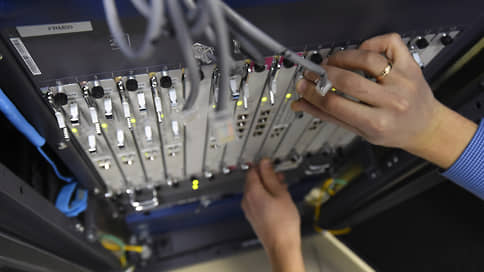Networks are tested for strength in the regions
[ad_1]

The Ministry of Digital Transformation asked small operators in the regions for data on their networks and subscriber bases. This is done on behalf of the President as part of a test of the stability of the connection. Information is needed to assign networks a certain category of criticality: depending on it, security requirements are formed. Understating the degree of categorization of objects threatens operators with fines. Experts note that the authorities have already requested such information from operators in 2022 when compiling lists for deferment from mobilization.
Regional telecom operators, including players from the Moscow, Tomsk, Novosibirsk, Sverdlovsk, Saratov and Tver regions, Adygea, Krasnodar Territory, as well as the LPR and DPR, received letters from the Ministry of Digital Development in July and early August with a request to provide information about the services provided, the availability of backbone and regional communication networks, as well as the subscriber base, including the number of corporate and government customers and the number of connected operators. Dmitry Galushko, CEO of the consulting company OrderCom, told Kommersant about this.
“Kommersant” got acquainted with the letters to several companies. The requirement to disclose information is justified by the need to “identify significant telecom operators on which the stable functioning of communication services and the state of stability and security of networks depend” in specific regions. Several letters specify that the information is requested in accordance with the methodological recommendations of Roskomnadzor.
The letter sent to operators in the Moscow region states that the evaluation of operators is carried out on behalf of the President. The interlocutor of Kommersant, close to the government, explained that this was one of the instructions related to the protection of the national communications infrastructure. Roskomnadzor told Kommersant that they could not provide additional information. The Ministry of Digital Development did not respond.
Data on the subscriber base is a commercial secret, each operator has the right not to disclose it, Alexey Slukin, editor of the Telecommunalka Telegram channel, explains: “For example, Tele2 did not disclose the subscriber base for a long time until it reached a certain point of development.” Roskomnadzor has already collected a register of “Operators occupying a significant position in the public communications network”, that is, working in the telephony segment, the expert adds: “Probably now the department wants to classify them according to other criteria.”
The data may be needed to check regional telecom operators, of which there are about 5,000 in the country as a whole, for compliance with the necessary categories under the law on the protection of critical information infrastructure (CII), Dmitry Galushko believes. At the end of 2022, a law was adopted according to which CII facilities can be fined for providing incorrect information to the FSTEC and underestimating the degree of categorization, he specified. For officials, the fine is from 10 thousand rubles. up to 50 thousand rubles, and for legal entities – from 50 thousand rubles. up to 100 thousand rubles, for a repeated violation the fine is doubled.
According to the requirements of 187-FZ, the networks of all telecom operators belong to CII objects, but there are three categories according to the degree of importance. Now the operators themselves must apply for the assignment of a certain category to the FSTEC. In this case, the CII object may not have a category at all.
The highest category (first) includes operators that have more than 5 million subscribers, and their networks go beyond the same region, the lowest (third) includes operators with a customer base from 50 thousand to 1 million and networks within the same city . Federal operators MTS, MegaFon, VimpelCom, Tele2 correspond to the first category, which is subject to increased security requirements, explains the interlocutor of Kommersant in the telecom market.
Kommersant’s interlocutor in one of the telecom operators believes that checks regarding the categorization of telecom operators according to the requirements of the CII are due to ongoing attacks on the infrastructure and the need to strengthen its security. At the same time, Dmitry Galushko adds that in the fall of 2022, after the start of partial mobilization, the authorities also asked operators for data on communication networks and subscriber base: “Based on this information, decisions can be made to allocate reservations for employees to companies.”
[ad_2]
Source link





